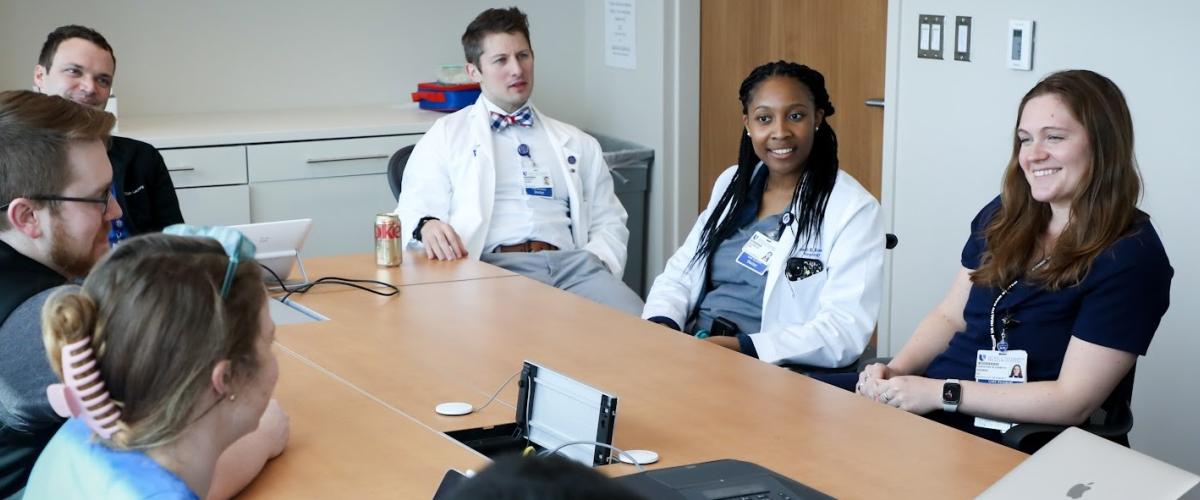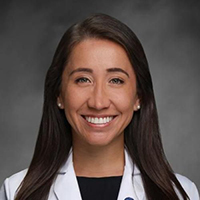
Requirements: All residents are required to undertake an academic project during their residencies. This can be a clinical or basic science research project but may also include performance improvement projects. Most residents will identify a project during their PGY-2 or early PGY-3 year. Many residents participate in several projects.
Resources: Duke Neurology has a large faculty with varied interests in clinical and translational research. Residents have many opportunities to participate in ongoing research or to find a mentor for their own idea. In addition to regular interactions during conferences and clinical work, residents can learn about research opportunities at monthly Neurology Research in Progress Meetings, where faculty members briefly present ongoing research.
In addition the Duke University Hospital is adjacent to Duke University, with nationally recognized programs and organizations such as neurobiology, the Duke Institute for Brain Sciences, engineering, genetics, immunology and variety of other fields. This offers opportunities for collaboration and program building.
The Duke Office of Clinical Research provides training and resources at several levels for Duke faculty and staff. This includes the opportunity to consult about project ideas and even seed money for projects. The Duke NCRO (Neuroscience Clinical Research Organization) supports residents and fellows by providing guidance with respect to the IRB and other administrative issues. Our faculty are participating in a variety of clinical trials, often in leadership positions.
Research electives are available for residents with a defined project and mentor. Residents must provide a written plan of goals/objectives for the rotation and a summary of what they accomplished. They must still attend their continuity clinic and 1-2 subspecialty clinics/week in an area related to their research project.
Some leadership and administrative tasks are required of all residents. This includes leading teams as PGY-2 residents and larger groups as PGY-4 residents. Residents are also heavily involved in the day-to-day administration of the program including making the daily schedule and adjusting schedules as needed. Residents are the primary source of feedback to the program regarding almost all aspects of the program. Their feedback (both direct and anonymous) often forms the basis of many discussions/changes in both the residency program and departmental/hospital matters. Residents also have a large role in the education of their colleagues – PGY-3 and PGY-4 residents take the lead in selecting topics for conferences.
There are also additional opportunities at the departmental and institutional level. At the departmental level, this includes participation in the Program Evaluation Committee, interviews/orientation of applicants and new residents, and participation in departmental performance improvement and quality improvement projects. At the institutional level, there are numerous opportunities including the GME Resident Council and Patient Safety and Quality Council.
"Residents have the opportunity to train alongside renowned attendings from different fields, and care for patients with a wide range of complexities. This clinical exposure is further enriched by daily didactic sessions led by these specialists, strengthening the overall educational experience." - Andrea Linares-Lopez, DO, Resident, Class of 2025 